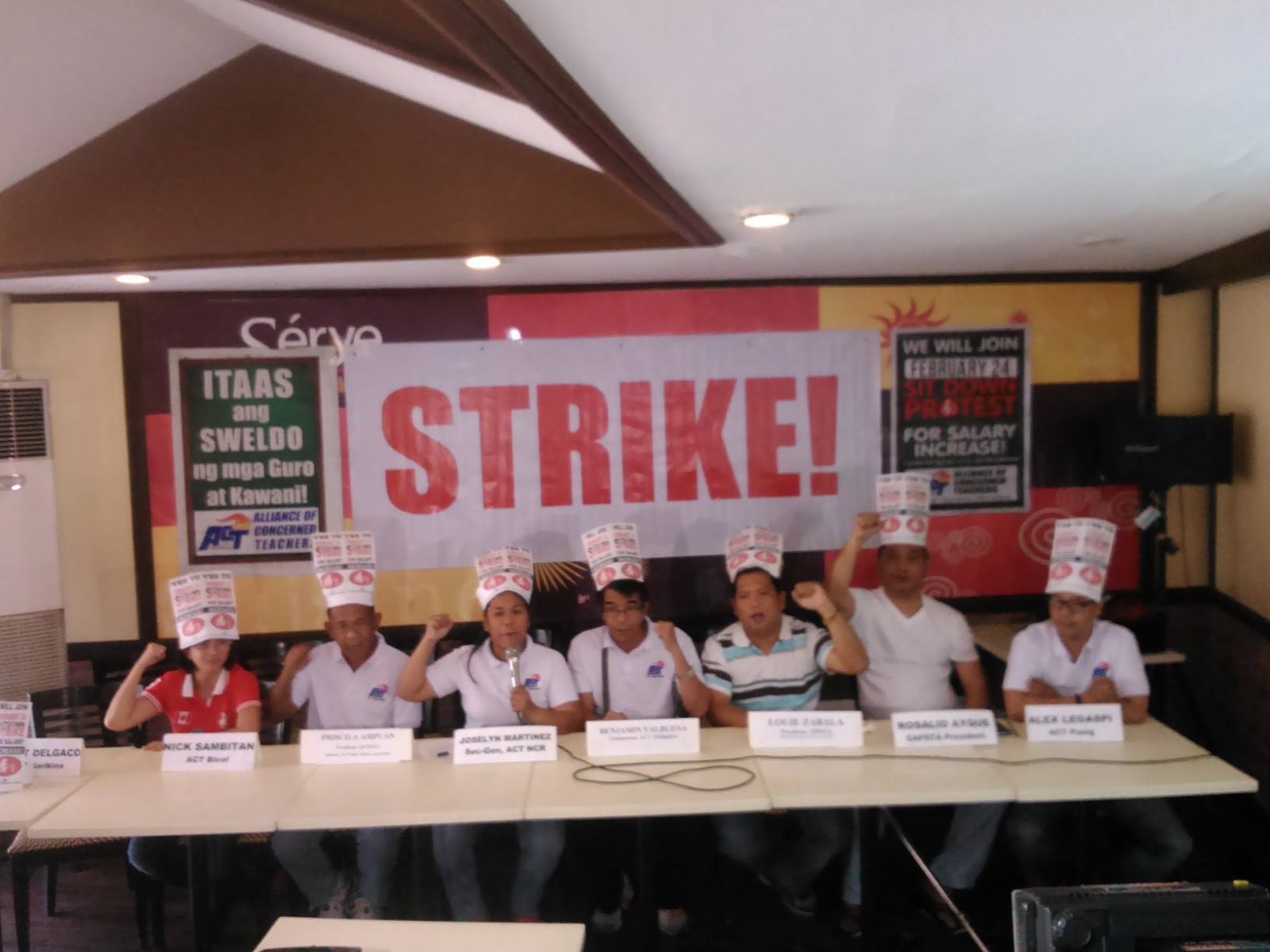Asking a President to Resign and a Salary Raise
Teachers belonging to the Alliance of Concerned Teachers (ACT) in the Philippines are scheduled for a sit-down strike this Tuesday, February 24, 2015. The strike reiterates the teachers' demand for a salary increase as mandated by law, Republic Act 4670 or the Magna Carta of Public School Teachers. The Salary Standardization Law likewise dictates that salaries of government workers which include teachers be adjusted every three years. No raises have been made since according to the president, the government simply has no funds for a pay hike.
Of course, ACT is quick to point out that the president however has funds for the Disbursement Acceleration Program (DAP) and Priority Development Assistance Fund (PDAF). Both programs have been declared unconstitutional by the Supreme Court of the Philippines. On top of the chief executive's refusal to grant salary increases, the recent massacre of police officers in Mamapasano, Maguindanao earns President Aquino III the title "Teachers' Enemy Number One".
The president does need to respond to quite a number of missteps his administration has made. This president after all is the main driving force behind the new K+12 curriculum of the Department of Education. Thus, at a time of great frustration, ACT is also asking the president to resign. It is not at all clear at this point, whether such resignation would lead to meeting the current demands basic education in the Philippines desperately needs. The constitution prescribes that in the case of a vacancy of the presidency, the duly elected vice president shall become president. Unfortunately, the current vice president is likewise not in a good light. There are presently serious questions raised regarding the vice president's unexplained wealth. ACT and other organizations are therefore suggesting a "transitional council" to act as caretaker before the country chooses in an election a new president and vice president. The current constitution of the Philippines does not have such a provision.
What the country really needs now is responsibility. It is really irrelevant to basic education who currently leads the government. In fact, it is only the president who could and must respond as a true leader to the needs of the country. The president is duly elected and has enough time during the remaining period of his term to begin solving the problems the country faces. A change in leadership does not guarantee that the right steps are going to be taken. Only responsibility can. The solutions can be reached within the confines of law. The solutions to the problem Philippine basic education faces do not require extraconstitutional measures. It merely requires a president who takes responsibility and acts based on evidence and not on whims.
A sit-down strike for just salaries is perhaps justified but as a call for a president to resign, that is stretching too much.
 |
| Above copied from the Alliance of Concerned Teachers |
The president does need to respond to quite a number of missteps his administration has made. This president after all is the main driving force behind the new K+12 curriculum of the Department of Education. Thus, at a time of great frustration, ACT is also asking the president to resign. It is not at all clear at this point, whether such resignation would lead to meeting the current demands basic education in the Philippines desperately needs. The constitution prescribes that in the case of a vacancy of the presidency, the duly elected vice president shall become president. Unfortunately, the current vice president is likewise not in a good light. There are presently serious questions raised regarding the vice president's unexplained wealth. ACT and other organizations are therefore suggesting a "transitional council" to act as caretaker before the country chooses in an election a new president and vice president. The current constitution of the Philippines does not have such a provision.
What the country really needs now is responsibility. It is really irrelevant to basic education who currently leads the government. In fact, it is only the president who could and must respond as a true leader to the needs of the country. The president is duly elected and has enough time during the remaining period of his term to begin solving the problems the country faces. A change in leadership does not guarantee that the right steps are going to be taken. Only responsibility can. The solutions can be reached within the confines of law. The solutions to the problem Philippine basic education faces do not require extraconstitutional measures. It merely requires a president who takes responsibility and acts based on evidence and not on whims.
A sit-down strike for just salaries is perhaps justified but as a call for a president to resign, that is stretching too much.
Comments
Post a Comment